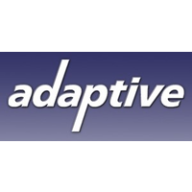

Adaptive Metadata Management and Data Hub are competing products in the data management category. Data Hub has the upper hand due to its robust features and scalability, although Adaptive Metadata Management offers outstanding customization capabilities.
Features: Adaptive Metadata Management offers dynamic data mapping, metadata customization, and flexible pricing, making it adaptable for various needs. Data Hub features strong data integration capabilities, scalability, and a comprehensive integration suite, tailored for complex environments.
Ease of Deployment and Customer Service: Adaptive Metadata Management ensures straightforward deployment with excellent support and guidance, making it user-friendly. Data Hub, while requiring a more complex setup, provides high-quality dedicated support and extensive resources, enhancing its reliability.
Pricing and ROI: Adaptive Metadata Management is recognized for competitive pricing, making it cost-effective with good ROI for smaller setups. Data Hub, despite a higher initial investment, offers superior value in large-scale environments due to its extensive features and scalability, resulting in valuable long-term benefits.
The Adaptive Metadata Manager™ product (V9.0) comprises a number of highly configurable software components that provide an organization with the eight core capabilities required to govern and improve virtually any data-driven business capability. These capabilities are: Data Lineage, Data Quality, Impact Analysis, Business Terminology, Business to Technical Traceability, Version Management, Change Approval Workflow, Stewardship, and Automated Harvesting & Stitching.
Built on a modern web application stack, application modules are accessed via a web browser. End-user capabilities, like business glossary lookups, are also easily integrated into desktop productivity applications (like Microsoft Office and Outlook email client) for ‘in-document’ searching.
Data Hub provides an integrated platform for managing, analyzing, and visualizing data, streamlining operations, and maximizing efficiency for businesses in multiple industries.
Data Hub serves as a comprehensive tool for businesses looking to leverage data for strategic decision-making. Offering capabilities such as data integration, transformation, and analysis, it supports varied business processes. By centralizing data, organizations can achieve enhanced productivity and insights. Integration features facilitate seamless data flow, while advanced analytics provide deep insights into business functions.
What are the standout features of Data Hub?In industries such as finance, healthcare, and manufacturing, Data Hub is implemented to connect multiple data sources, facilitating real-time analytics and reporting. This enhances customer experience, speeds up time-to-insight, and supports compliance with industry standards, allowing businesses to stay competitive and agile.
We monitor all Metadata Management reviews to prevent fraudulent reviews and keep review quality high. We do not post reviews by company employees or direct competitors. We validate each review for authenticity via cross-reference with LinkedIn, and personal follow-up with the reviewer when necessary.